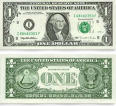New law regulating operations with hard currency in Russia
 New Russian law “On Currency Regulation and Currency Control” has come into force.
New Russian law “On Currency Regulation and Currency Control” has come into force.
The law changed the procedure of banking for Russian individuals and made more precise the term of “currency valuables”.

The new law was adopted by Russian Parliament on November 21, 2003 and came into force in 6 months later. Some points of the law will come into force a year later its adoption, and the restrictions on some operations with currency will be preserved until January 1, 2007.
According to the law, there will be no restrictions on the operations with currency between residents and non-residents, except for the restrictions imposed on some operations to prevent significant reducing gold and currency reserves of Russia, sharp changes of Russian national currency exchange rate and to maintain stable payment balance of the Russian Federation. These restrictions have nothing common with protectionism and must be abandoned by the institutions for currency regulation as the circumstances which caused imposing restrictions, no longer exist.
There may be such restrictions as the request to use special account and reserves.
The law names the operations which can be restricted by the government and by the Central Bank. There are no restrictions on all the rest of the operations mentioned in the law, "Interfax" reported.
The law preserved the request of mandatory repatriation for hard currency profit. However, from now on the exporters cannot be requested to sell more than 30 percent of their currency earnings, Finmarket reported.
The bodies regulating currency circulation – the government and Central Bank – are not authorized to request both residents and non-residents to obtain individual permissions.
Precious metals and stones have been expelled from the “currency valuables” category. This category includes foreign currency and securities nominated in foreign currency.
Nevertheless, bank operations liberalization includes introducing tools to influence the operations with currency – regime of special accounts and mandatory reserving for juridical persons, ITAR-TASS reported.
According to the law, Russian citizens are authorized to open accounts in the banks of the major foreign countries with no permission of Russian Central Bank. In addition, Russian individuals are authorized to take up to $10,000 out of the country with no producing documents confirming that the money was taken in, transferred or obtained in Russia, MFD.ru reports.
In addition, the law permits both residents and non-residents to take out of the country the currency equivalent to $10,000. The currency not more than $3,000 should not be declared with the Customs Office, Voyazh reported.
If the amount of currency exceeds $3,000 in cash, the money should be declared in the Customs Office by submitting Customs declaration on all the sum of the cash currency taken out of the country. Individuals, both residents and non-residents, are not allowed to take more than $10,000 out of the country.
The request for individuals to produce IDs when purchasing or selling cash currency, has been cancelled by the new law. However, other federal laws can introduce this request. For example, the law on preventing money-laundering introduces control for the operations with money exceeding the sum of 600,000 roubles ($20,000)
Source: Russian media
Subscribe to Pravda.Ru Telegram channel, Facebook, RSS!


